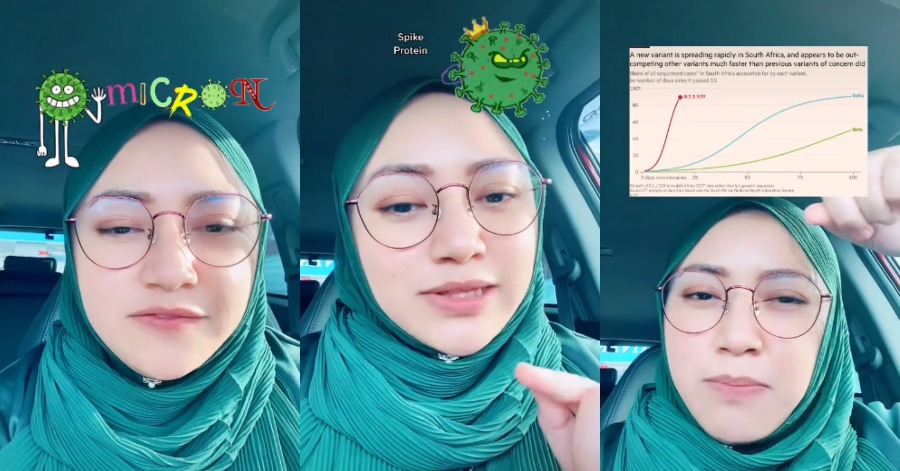PETALING JAYA (Bernama) — “Geylang si paku geylang, Geylang si rama-rama, pulang marilah pulang, marilah pulang bersama-sama; pulang marilah pulang, marilah pulang bersama-sama.”
The opening number of popular Malay folk song ‘Geylang Si Paku Geylang’ by Lynn Tan, 34, the lead singer of Malaysian musical Indie band Fazz, mesmerised some 120 people in the audience at Nero Event Space, Petaling Jaya Performing Art Centre (PJPAC).
Her refreshing and mellow rendition of the evergreen song was a walk down memory lane and brought many childhood memories for the older generation among the audience. The song is often associated with the Singapore Malay community’s strong sense of belonging to Geylang Serai.
But perhaps the real musical magic that night came from the traditional Malay music featuring gamelan, flute and gong, which are usually performed during royal ceremonies as well as the wayang kulit, a traditional form of puppet-shadow play.
As the audience were immersed in Tan’s soulful voice, three black-robed figures suddenly appeared on stage, bringing with them two puppets – one which resembles an elderly woman wearing a green sarong tied above her chest (‘berkemban’) and another, that of a young man.
The ‘elderly woman’, who appeared as though she was walking on a white artificial rock, then waved at the ‘young man’, which was aided by an iron rod behind it, with the sound of sea waves crashing on rocks in the background.
At this juncture, all eyes were shifted to the ‘elderly woman’ and ‘young man’ named ‘Tanggang’ who were the lead cast of the theatre titled ‘Ibu’ by the Iron Gang Puppet Theatre group.
Inspired by the folklore popular in Southeast Asia – ‘Si Tanggang’, the 90-minute theatrical performance held on March 27, revolves around a tale about retribution of an unfilial son. A curse befell Si Tanggang for betraying his mother, turning him into stone.
According to the story, after leaving his village and becoming rich and successful, Si Tanggang, who is married to a South Korean princess, is ashamed of his humble origins and on a trip back home, refuses to recognise his elderly mother. Heartbroken, she curses him and when he sets sail, he and his ship turn to stone.
The theatre which is presented to the audience in four languages – Malay, English, Teochew dialect and South Korean – features a creative collaboration between the five-piece band Fazz and multimedia artist, Abdul Shakir Abu Samah.
TRANSCENDS TRADITION
For the founder of Iron Gang Puppet Theatre and master puppeteer, Goh Hooi Ling, 41, the puppetry performance of ‘Ibu’ is her maiden project which combines the traditional and modern elements.
Goh, who was born in Georgetown, Penang admitted that ‘Ibu’ is her biggest ‘investment’ after 33 years in the Teochew opera puppetry which only focuses on folk tales and tales on emperors from China.
Better known in her professional capacity as Ling Goh, the opera singer inherited her performing genes from her mother Toh Ai Hwa, who has been honoured with the Living Heritage Treasure of Penang Award by the Penang Heritage Trust Group.
“I became involved in Chinese puppetry theatre since I was seven years old. We usually travelled to many places for our theatrical performance whether during our prayers at Chinese temples, hungry ghost festivals or on the invitation of Taoist ritual associations.
“As the only member in the family who is still active in the opera arts and Chinese Teochew puppetry in Penang, it is my sincere wish to preserve my cultural legacy inherited from my ancestors and pass on to the younger generation,” she told Bernama.
According to Goh, in preserving and sharing the traditional art form today, she made changes to her performance by injecting life to Chinese puppetry by using iron rods without discarding the tradition.
“We do not want our culture and tradition to be forgotten by the passage of time. We always innovate through creativity to attract the younger generation to appreciate our ancestral heritage,” she added.
Describing the Teochew theatre as her ‘roots’, Goh who is a fourth generation Teochew Opera performer, said that her first attempt at introducing the Malaysian identity elements in her performance came to fruition with the support from various parties, including the government.
Other types of assistance were also received from the National Economic Recovery Plan (PENJANA), the Cultural Economy Development Agency (CENDANA) and Penang State Government, in addition to non-governmental organisations (NGOs) and individual arts activists.
“We took two and a half years that is before the pandemic to make the necessary preparations in terms of research, design, scripting and crafting the puppets so that we can deliver the best to our audience,” she said.
MALAYSIAN IDENTITY FOLK TALES
For Goh, most of her Teochew puppet theatres are performed during certain celebrations in Chinese temples based on the script and original story from China which were inherited from her ancestors.
“Usually, our performance is almost similar to wayang kulit; the only difference is the wayang kulit employs light and shadow, with the puppets held up behind a piece of white cloth using two iron rods during the performance while our puppets are controlled from the back with three iron rods.
“Our audience will not be able to see who is controlling or playing the puppets during the theatrical performance. However, for the first time, we broke the tradition by featuring the puppets on stage,” said the torch-bearer of Teochew opera.
As a Malaysian, Goh who is the director of the Penang Teowchew Puppet and Opera House, said she portrays Malaysian identity elements rather than focusing on Chinese Teowchew heritage alone in her puppetry performance.
“We usually portray emperors and stories of our ancestors from China, but it also made me think, how about our stories here? Can we reflect our identity as ‘Bangsa Malaysia’ (Malaysian nation) through this iron-rod puppetry theatre?”
“After brainstorming sessions with our group, we decided to promote local stories, bringing to light the history, culture and traditions, values and the wisdom of each region, community and nation.
“We tried to explore and unravel the meanings behind every (folk) tale, culture or reconstruct the story by giving a new perspective to our puppetry theatre and make it contemporary.
“As such, we chose Si Tanggang, a famous Southeast Asian folklore tale that is based on eastern culture, that is the importance of filial piety and healthy relationships in a family, as our source of materials for this creative venture,” she said.
While the classical folklore was part of upbringing for children of yesteryears, she has adapted them to puppetry theatre which is also aimed at driving home the message behind the tales.
“It also portrays the love of a mother towards her son and ends in tragedy, with most folklores of the past having similar lessons to be learnt by the younger generation,” she said.
SPEARHEADS PUPPETRY THEATRE
Meanwhile the director of the puppetry theatre ‘Ibu’, Ling Tang said she was given the confidence of spearheading and directing the puppetry show, as a result of a joint collaboration between the traditional and modern groups.
“So far, I have been actively involved in producing musical theatres and dramas, but this time, I’m tasked with directing the theatre for the first time, involving puppetry activists who combined the traditional and modern musical elements.
“From the aspects of musical band, voice over and backdrop for the stage, we always brainstorm for new ideas in this show and at the same time, our ancestral heritage will be preserved, with its original form retained.
“Most of us here have not been exposed to traditional elements such as Chinese opera, puppetry theatre and the traditional musical instruments.
“However, we are grateful for being able to learn new things from the Iron Gang Puppet Theatre group, especially Goh, who is willing to teach us in stages,” said Tang, who brings with her 30 years of experience in cinematography.
According to Tang, her production group is fortunate to have the expertise of famous Taiwanese puppet maker, Liang Mong-Han who crafted the elderly woman (ibu)’s character.
The ‘Ibu’ puppet was specially flown from Taiwan by the puppetry master while the ‘Tanggang’ character was created by the Iron Gang group using wood and clay.
“Both puppets measuring 40 by 50 cm in height and weighing about one kg, took six months to complete,” she said, adding that both puppets will be exhibited at the main exhibition hall of Penang Teochew Puppet and Opera House.
SPIRIT OF KELUARGA MALAYSIA
Meanwhile, music director and spokesman for musical Indie band Fazz, Raja Farouk Raja Zaini Ismail, 35, said his group was given the confidence to perform its songs in the staging of ‘Ibu.’
“We are proud to be working together with Iron Gang group, but at the same time, we were initially worried as Chinese opera groups are usually strict during daily training.
“However, they prove us wrong and in fact we are comfortable working with Goh and her group and we are glad to have been given the trust to compose songs for this show.
“Playing the traditional musical instruments such as gamelan and gong in the theatre was our first experience.
“It is indeed an invaluable learning and exciting experience for us especially in the production of the theatre, but also as a Keluarga Malaysia (Malaysian Family), we learn the culture as well as customs and traditions of each other, values of tolerance and mutual respect,” he added.
Sources: BERNAMA








